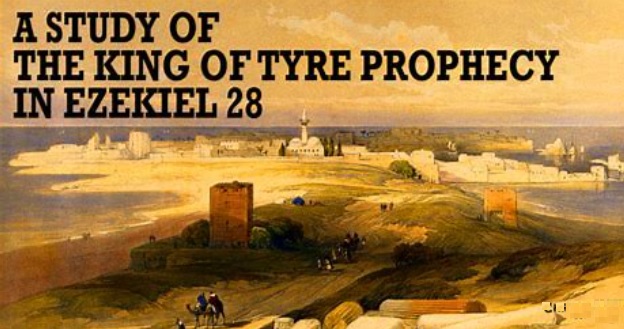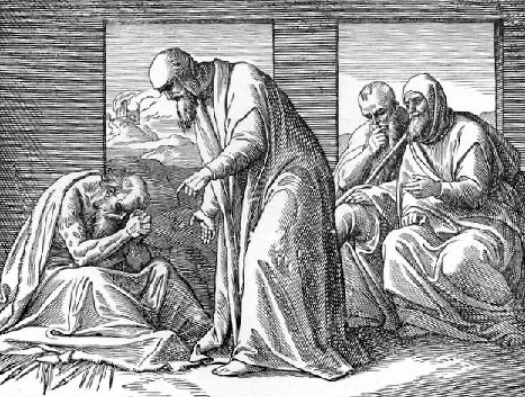“Go therefore and make disciples of all the nations…teaching them to observe all that I commanded you; and lo, I am with you always, even to the end of the age” (Matthew 28:19-20, NASB).
——————–
Contents:
1) The Matchless Love of Jesus (Steve Wallace)
2) Choices & Character (Bill Crews)
3) A Pardon Rejected (Anonymous)
4) Living According to the Standard (video sermon, Tom Edwards)
5) News & Notes
——————–

-1-
The Matchless Love of Jesus
Steve Wallace
The Word of God tells of the matchless love of Christ which we celebrate in song. Indeed the Bible’s portrayal of the love of Christ is one which shows it to be unlike any love known to man. We could examine Christ’s love from the standpoint of the effects it has had on mankind where it has provoked change of life, devotion, praise, sacrifice, and wonderful works. However, such effects, no matter how marvelous, are only reactions to this unique love. Therefore, let us look at some things that the Bible says about it and, though dealing with a broad subject within a limited space, seek to know more about the matchless love of Jesus.
1. The background of his coming. God had loved Israel “with an everlasting love” (Jer. 31:3) and could say in the book at the end of the Old Testament canon, “I have loved you” (Mal. 1:2). However, his love was generally not requited. On the contrary, his people had largely rejected him in various ways throughout their history (Hos. 3:1f; Heb. 3:7-11; Matt. 21:33-44). Rightly does Isaiah write that “all we like sheep have gone astray” (Isa. 53:6). Through all this “God, willing to show his wrath (e.g., Sodom and Gomorrah, the flood, the Babylonian captivity), and to make his power known, endured with much longsuffering (i.e., he showed his love, Eph. 4:2) the vessels of wrath fitted to destruction” (Rom. 9:22). Having shown love for mankind through all its tragic history, God made the greatest demonstration of his love: he “so loved the world, that he gave his only begotten Son, that whosoever believeth in him should not perish, but have everlasting life” (Jn. 3:16). Where on earth can one go to find such an example of love? The matchless love of Christ had its roots in a similarly matchless love.
2. His life. Love gives (Jn. 3:16) and Jesus’ life was a life of giving, a life of love. Though he existed in the “form of God,” Jesus “emptied himself, taking the form of a servant, being made in the likeness of men” (Phil. 2:6-7, ASV). “He came to his own, and his own received him not” (Jn. 1:11). Undaunted by the enemies he made, he “went about doing good” (Acts 10:38). Summing up his work, “The blind receive their sight, and the lame walk, the lepers are cleansed, and the deaf hear, the dead are raised up, and the poor have the gospel preached to them” (Matt. 11:5). He taught that man’s primary obligation is to “love the Lord thy God with all thy heart, and with all thy soul, and with all thy mind” and to “love thy neighbor as thyself ” (Matt. 22:37-39) and exemplified such love for all to see by his good works and by his keeping God’s commandments (Jn. 15:10). Though tempted, he “did no sin, neither was guile found in his mouth” (1 Pet. 2:22). The life that he lived is without parallel; the love he exemplified is matchless!
3. His last day. We see our Savior’s matchless love from another perspective when we study some of the last deeds of his life. “Having loved his own which were in the world, he loved them unto the end” (Jn. 13:1). With the humiliation and pain of the cross looming up before him, he humbled himself, washing his disciples’ feet as an example to them (Jn. 13:15-16). As he was being led to Calvary, bloodied by the beating he had just received, he refused the sympathy of women who followed him, choosing rather to sympathize with them (Lk. 23:27-31). In spite of the intense pain he must have felt as he hung on the cross, his thoughts were of others: he prayed for his executioners, spoke salvation to one of the thieves, and saw to the care of his mother (Lk. 23:34,39-43; Jn. 19:25-27). “When he was reviled, (he) reviled not again; when he suffered, he threatened not” (1 Pet. 2:23). Through it all, he was the picture of perfect love. We search in vain for such an example in all the pages of all the books that have ever been written, save one: The Bible. “Oh what love, matchless love.”
4. His death. This sacrifice would be incomplete if we failed to note what the Bible says about our Lord’s death. He said, “No man taketh (my life) from me, but I lay it down of myself. I have power to lay it down, and I have power to take it again” (Jn. 10:18). Jesus chose to lay down his life. “Hereby know we love, because he laid down his life for us” (1 Jn. 3:16, ASV). “But he was wounded for our transgressions, he was bruised for our iniquities: the chastisement of our peace was upon him; and with his stripes we are healed. All we like sheep have gone astray; we have turned every one to his own way; and the Lord hath laid on him the iniquity of us all” (Isa. 53:5-6). “For when we were yet without strength, in due time Christ died for the ungodly. For scarcely for a righteous man will one die: yet peradventure for a good man some would even dare to die. But God commendeth his love toward us, in that, while we were yet sinners, Christ died for us . . . when we were enemies, we were reconciled to God by the death of his Son” (Rom. 5:6-10). Satan once said, “Skin for skin, yea, all that a man hath will he give for his life” (Job 2:4). It was love that caused Christ to overcome man’s natural aversion to dying, a love not quenched by the long history of man’s rebellion against God nor by the treachery which surrounded his death. “Oh what wondrous love I see freely shown for you and me!”
5. How should we then live? Love begets love (Jn. 15:9; 1 Jn. 3:16). Therefore, we should strive at “having the same love” Christ has shown us (Phil. 2:1-2). I suggest the following applications of his love to our lives:
1. We should love Christ’s body, the church (Eph. 5:25). He gave himself for it and we should do our part to keep it as he would have it, without “spot, or wrinkle, or any such thing” (Eph. 5:27).
2. We should love the truth which Jesus died to give man (Heb. 9:14-23; Jn. 8:32; 14:23; Gal. 5:6).
3. We should love our brethren (Phil. 2:1-2; 1 Jn. 3:16; 4:7).
4. We should love the lost (Jn. 3:16; Rom. 5:8).
5. Husbands should love their wives as “Christ also loved the church, and gave himself for it” (Eph. 5:25).
6. We should cultivate love’s wonderful character so that it becomes a part of our personality (1 Cor. 13:4-8).
7. We should love our enemies (Matt. 5:43-48; Lk. 23:34).
Conclusion
Christ’s love is without comparison. Nothing which we might allow to influence us in this world can approach matching the one-of-a-kind love we find in Jesus, and our greatest endeavors are worthless without love (1 Cor. 13:1-3). May we all give ourselves to him because of the “love that will not let me go” and be “constrained” by it to walk closer to him each day (2 Cor. 5:14). Brethren, “keep yourselves in the love of God” (Jude 21).
— Via Guardian of Truth, XXXVIII No. 23, pages 13-14, December 1, 1994 (http://www.truthmagazine.com/archives/volume38/GOT038310.html)
——————–

-2-
Choices & Character
Bill Crews
Cunningham Geike, a Scottish preacher of the 19th century, wrote: “Our character is but the stamp on our souls of the free choices of good and evil we have made through life.” I believe his observation was correct.
We are free moral agents. The entire thrust of the Bible, addressed in its various parts and particulars to various individuals in the past and the present, is proof of this. God does not force men, but He does speak to men; and in speaking to men God instructs, reasons, warns, admonishes, promises, threatens, exhorts, encourages, appeals, pleads and implores. Man ever decides whether to listen or not; and upon listening, decides whether to respond or not; and, upon responding, decides what his response will be. For all of which God will call him to account. But man is indeed a free moral agent. He has volition. He has the freedom to choose.
Over and over man is placed in the position of making a choice (e.g., Adam and Eve in the garden of Eden [Genesis 2:16-17] and the Jews on the day of Pentecost [Acts 2:37-40]). Time and again men are called upon to choose. Moses said to Israel: “I call heaven and earth to witness against you this day, that I have set before thee life and death, the blessing and the curse: therefore choose life, that thou mayest live, thou and thy seed; to love Jehovah thy God, to obey His voice, and to cleave unto him; for He is thy life, and the length of thy days; that thou mayest dwell in the land which Jehovah sware unto thy fathers, to Abraham, to Isaac, and to Jacob, to give them” (Deuteronomy 30:19-20). Said Joshua to Israel: “And if it seem evil unto you to serve Jehovah, choose you this day whom ye will serve; whether the gods which your fathers served that were beyond the River, or the gods of the Amorites, in whose land ye dwell; but as for me and my house, we will serve Jehovah” (Joshua 24:15). Said Elijah to the people of the northern kingdom of Israel: “How long go ye limping between the two sides? if Jehovah be God, follow Him; but if Baal, then follow him” (1 Kings 18:21).
Again and again you and I are placed in the position of making a choice between right and wrong:
1. As children, whether or not we will obey our parents. What does God say? Ephesians 6:1-3
2. As students, whether or not we will listen, learn, study, do our assignments, put forth a good effort, be honest, abide by the rules. What does God say? Romans 12:17; Ecclesiastes 9:10.
3. Whether we will choose good companions or evil companions. What does God say? 1 Corinthians 15:33.
4. Whether we will be careful or reckless drivers; whether or not we will obey the traffic laws. What does God say? Romans 13:1-7.
5. Whether or not we will be honest and dependable workers. What does God say? Luke 3:13-14; Colossians 3:22-4:1.
6. Upon hearing the gospel, whether or not we will become Christians or whether we will serve God or go on serving Satan. What does God say? Acts 2:41; 24:24-25; 26:28-29.
7. Upon becoming a Christian, whether or not to really be or live as a Christian. What does God say? 1 Peter 2:11-12; Romans 6:1-2; Colossians 3:1-2.
8. Whether or not we will be steadfast in prayer. What does God say? Philippians 4:6; Ephesians 6:18.
9. Whether or not we will diligently read and study our Bible? What does God say? 1 Peter 2:1-2; 2 Peter 3:18; Colossians 3:16.
10. Whether or not we will assemble faithfully with our brethren for Bible classes and worship assemblies. What does God say? Hebrews 5:11–6:3; 10:19-25.
The decision we make in each case will be largely determined by the guidance we have received and the character we have thus far molded, but every choice made makes a further impression upon our character and, in turn, will affect the choices that lie ahead. Good character can be destroyed in a brief span of time, but bad character can be reformed and sin can be forgiven. Our readers are challenged to make the right choice in every case that confronts them. God will help you if you want His help.
— Via Roanridge Reader, Volume 36, Issue 12, Page 4, March 21, 2021
——————–

-3-
A Pardon Rejected
During the presidency of Andrew Jackson, George Wilson robbed a federal payroll from a train and in the process killed a guard. The court convicted him and sentenced him to hang. Because of public sentiment against capital punishment, however, a movement began to secure a presidential pardon for Wilson, and eventually Jackson intervened with a pardon. Amazingly, Wilson refused it.
Since this had never happened before, the Supreme Court was asked to rule on whether someone could indeed refuse a presidential pardon. Chief Justice John Marshall handed down the court’s decision: “A pardon is a parchment whose only value must be determined by the receiver of the pardon. It has no value apart from that which the receiver gives to it. George Wilson has refused to accept the pardon. We cannot conceive why he would do so, but he has. Therefore, George Wilson must die.” “Pardon,” declared the Supreme Court, “must not only be granted, it must be accepted.” George Wilson, as punishment for his crime, was hanged.
Likewise, God, through His mercy, has provided every human being pardon from their sins. However, that pardon must be accepted in the way God has ordained. Those who do not accept the pardon will perish.
– selected (via The Beacon, February 21, 2021)
——————–
-4-
Living According to the Standard
Tom Edwards
Clicking on the following link will take you to the video sermon, entitled above:
https://thomastedwards.com/wordpress/Standard_032821.mp4
——————–
-5-
News & Notes
Folks to be praying for:
Jim Lively recently began seeing a new doctor and undergoing new treatment at the Fyzical Therapy & Balance Center in Waycross, where he will be going twice a week for the exercise sessions to help regain his balance. He also does these twice a day at home. His medication has also been adjusted because of an irregular heartbeat.
Rick Cuthbertson has six more weeks to go on his cancer-treatment meds until having another scan to see of the results.
Due to an irregular heartbeat, Shirley Davis will be having a procedure April 2. She also has continual pain in her back, which is worse when standing.
Also for prayer: Nell Teague, Malachi Dowling, Vivian Foster, Larry & Janice Hood, Ginger Ann Montero, Gege Gornto, Rex Hadley, A.J. & Pat Joyner, Jaydin Davis, Deborah Medlock, Chris Williams, and Cameron Haney.
——————–
The Steps That Lead to Eternal Salvation
1) Hear the gospel — for that is how faith comes (Rom. 10:17; John 20:30-31).
2) Believe in the deity of Jesus Christ (John 8:24; John 3:18).
3) Repent of sins. For every accountable person has sinned (Romans 3:23; Romans 3:10), which causes one to be spiritually dead (Ephesians 2:1) and separated from God (Isaiah 59:1-2; Romans 6:23). Therefore, repentance of sin is necessary (Luke 13:5; Acts 17:30). For whether the sin seems great or small, there will still be the same penalty for either (Matt. 12:36-37; 2 Cor. 5:10) — and even for a lie (Rev. 21:8).
4) Confess faith in Christ (Rom. 10:9-10; Acts 8:36-38).
5) Be baptized in water for the remission of sins (Mark 16:16; Acts 2:38; 22:16; 1 Pet. 3:21). This is the final step that puts one into Christ (Gal. 3:26-27). For from that baptism, one is then raised as a new creature (2 Cor. 5:17), having all sins forgiven and beginning a new life as a Christian (Rom. 6:3-4). For the one being baptized does so “through faith in the working of God” (Col. 2:12). In other words, believing that God will keep His word and forgive after one submits to these necessary steps. And now as a Christian, we then need to…
6) Continue in the faith by living for the Lord; for, if not, salvation can be lost (Matt. 24:13; Heb. 10:36-39; Rev. 2:10; 2 Pet. 2:20-22).
——————–
Tebeau Street
CHURCH OF CHRIST
1402 Tebeau Street, Waycross, GA 31501
We are currently meeting for only our Sunday 10 a.m. worship service each week, due to the coronavirus situation.
evangelist/editor: Tom Edwards (912) 281-9917
Tom@ThomasTEdwards.com
https://thomastedwards.com/go/all.htm/ (older version of the Gospel Observer website, but with bulletins going back to March 4, 1990)






















